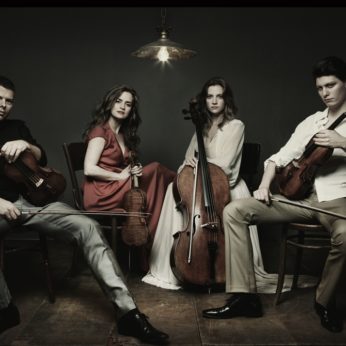Composer: Leo Weiner (b. 1885 - d. 1960)
Performance date: 03/07/2013
Venue: St. Brendan’s Church
Composition Year: 1938
Duration: 00:22:14
Recording Engineer: Damian Chennells, RTÉ lyric fm
Instrumentation: vc
Instrumentation Category:String Quartet
Artists:
Kelemen Quartet (Barnabás Kelemen, Gábor Homoki [violins], Katalin Kokas [viola], Dóra Kokas [cello]) -
[quartet]

Weiner was an exact
contemporary of Kodály and Bartók, but did not follow their path into folk
music research, though he was not above using folk tunes in his work. He gained
prominence early in his career by winning the Franz Josef Jubilee Prize, which
opened the doors of the
conservatories to him. Critics dubbed him the ‘Hungarian Mendelssohn’ on
account of his early successes and his music featured in a concert in Paris in
1910 alongside that of Bartók, Kodály and Dohnányi, where they were
collectively labeled jeunes barbares.
However Weiner’s musical development ignored the mainstreams of twentieth
century music and his reputation slowly faded.
In 1908 he joined
Bartok as a teacher at the
Professor of Composition in 1912 and remained there all his working life. Unlike
Bartók and Veress he did not feel the need to emigrate.
His Third Quartet
is a triptych juxtaposing three aspects of his style without a break. The
introductory Pastorale is a delight
with its cheerful lyricism and soft light and clearly owes a debt to the
pentatonic turns of phrase from traditional music. The Fantasy glitters with melodic invention and a virtuoso part for the
first violin. His respect for the old forms gives us the spectacular final
fugue based on a folk theme taken from a bagpipe player. This blends a musette
tune and old minstrel refrains with the strict development of the art of fugue,
creating an electrifying finale in the manner of Haydn.
Copyright © 2024 West Cork Music. All rights reserved.
Designed and developed by Matrix Internet